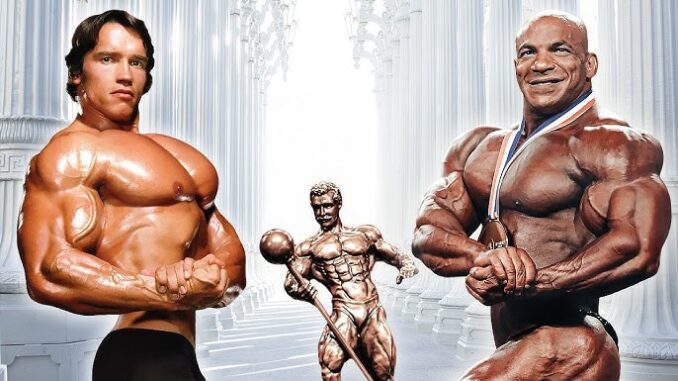
While bodybuilding certainly attracts a lot of attention, there’s an ongoing debate as to whether it’s a true sport or not. After all, it’s more about aesthetics than physical performance, with the likes of Arnold Schwarzenegger and Ronnie Coleman generating interest in the practice because of their looks. This is why gambling sites such as GGBet Estonia typically don’t offer bets on it.
Even so, bodybuilding is still very much a whole industry that’s not to be ignored. It’s had quite an interesting history and looks like it’s going to have a promising future. This post looks at how bodybuilding has evolved over the years.
Muscle Beach
The famous Muscle Beach in Los Angeles played a key role in the development and growth of bodybuilding. Bodybuilders would gather on the beach and work out, encouraging others to improve their physique and grabbing the attention of passers-by. In the 1940s, a documentary about the beach and its bodybuilders drew more people to it, while in the 1950s, it started hosting formal bodybuilding competitions. They would attract competitors from near and far, all of whom were keen to impress the judges and make a name for themselves.
The Golden Age
There’s evidence to suggest that modern bodybuilding as we know it was practised as far back as the 1890s. However, the practice didn’t really take off and become popular on an international level until the 1960s and 1970s. The general consensus is that this particular time was when bodybuilding experienced its Golden Age, with the west coast of the USA as the centre of the action. California in particular was a hub of activity for bodybuilding.

People such as Arnold Schwarzenegger, Frank Zane and Lou Ferrigno rose up the ranks and became some of the practice’s most famous ambassadors. Each one of these bodybuilders was known for his expertly sculpted physique, superior body proportionality and the amount of muscle he had built up. It was during the 60s-70s that bodybuilding was entirely about physicality. Only the fittest, toughest and strongest rose to the top, winning competitions and earning fame and recognition in the process.
Mr. Olympia and Bodybuilding in the Olympics
Speaking of competitions, it was in 1965 that Joe Weider’s Olympia Fitness & Performance Weekend was established. This is an international bodybuilding competition that still runs to this day. It’s sanctioned by the International Federation of Bodybuilding & Fitness Professional League and its winner earns the title of Mr. Olympia. Ronnie Coleman and Lee Haney are the joint record holders, having won eight times each. The competition remains a key part of the bodybuilding calendar today, attracting many of the world’s leading bodybuilders.

At the start of the 2000s, the International Federation of Bodybuilding & Fitness tried to have bodybuilding included in the Olympics. The organization gained membership from the International Committee in 2000 and managed to get bodybuilding approved as a demonstration event. The idea was that this would be a stepping stone to the practice being recognized as a proper Olympic sport. However, this didn’t end up happening and bodybuilding has still never been an official sport at the Olympics.
Bodybuilding Today
While many would argue that the Golden Age of bodybuilding has long since passed, it is still a popular, much-loved activity today. People from all backgrounds are drawn to it because of the challenge it involves, not to mention the mental and physical benefits that can come from being extremely disciplined.
It’s perfectly possible for bodybuilders to build a successful career, whatever their size and whatever category or division they compete in. These days, there’s a lot more to it than the physical aspect. While the fitness side is and always will be important, quite a few bodybuilders focus on the aesthetics as much as the physicality. Social media has certainly helped promote bodybuilding, enabling people
